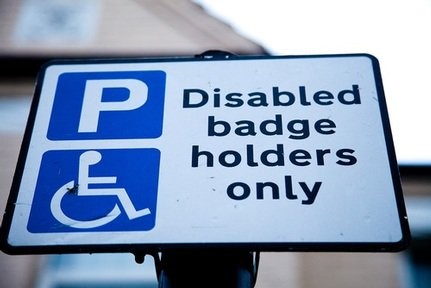Blue Badge scheme set to help thousands of people with 'hidden disabilities'
People with 'hidden disabilities' such as autism and mental health conditions will be eligible for blue badge parking permits, in the biggest change to the system in 40 years.

The Government said the changes were part of its drive for "greater parity between physical and mental health conditions" and will affect thousands of people.
The Department for Transport (DfT) hopes the move will make it easier for individuals to travel to work, socialise and access shops and amenities.
In its announcement, the Government said: "The Blue Badge scheme already means those with physical disabilities can park closer to their destination than other drivers, as they are less able to take public transport or walk longer distances.
"In the biggest overhaul to the scheme since the 1970s, this will now be extended to those with less visible conditions early next year."
The new criteria will extend eligibility to people who:
- Cannot undertake a journey without there being a risk of serious harm to their health or safety or that of any other person (such as young children with autism)
- Cannot undertake a journey without it causing them very considerable psychological distress
- Have very considerable difficulty when walking (both the physical act and experience of walking).
Transport minister Jesse Norman said: "Blue badges are a lifeline for disabled people, giving them the freedom and confidence to get to work and visit friends independently.
"The changes will ensure that this scheme is extended equally to people with hidden disabilities so that they can enjoy the freedoms that many of us take for granted."
The Government consultation, which ran from 21 January to 8 March, received more than 6,000 responses from across the country.
The DfT will now work with stakeholders to develop new guidance to help them administer the Blue Badge scheme when the changes come into force next year.
Sarah Newton, minister for disabled people, health and work, said: "It's absolutely right that disabled people are able to go about their daily life without worrying about how they will get from one place to another.
"We're taking an important step forward in ensuring people with hidden disabilities get the support they need to live independently."
Around 2.4 million people have blue badges in England, which allows people with disabilities to park close to their destinations – including on yellow lines. The latest announcement will make a difference to lives of more than 600,000 autistic people in England, and their families.
According to Jane Harris, director of external affairs at the National Autistic Society: "Just leaving the house is a challenge for many autistic people, involving detailed preparation – and sometimes overwhelming anxiety about plans going wrong.
"And some autistic people might not be aware of the dangers of the road or become overwhelmed by busy or loud environments. The possibility of not being able to find a parking space near where you’re going can mean you can’t contemplate leaving the house at all.
"The National Autistic Society and our supporters have been highlighting problems with the current rules to the government for many years.”
For more information visit: www.gov.uk/apply-blue-badge
Latest News
 29-Jul-24
Dementia Bus gives carehome.co.uk staff insight into life with dementia
29-Jul-24
Dementia Bus gives carehome.co.uk staff insight into life with dementia
 01-Mar-24
Find out the top care homes in 2024
01-Mar-24
Find out the top care homes in 2024
 21-Mar-23
UK's top care homes in 2023 revealed
21-Mar-23
UK's top care homes in 2023 revealed
 03-Jan-23
carehome.co.uk launches free care helpline
03-Jan-23
carehome.co.uk launches free care helpline
 13-Dec-22
5 mins with Emily Whitehurst, chief operating officer for Constantia Healthcare
13-Dec-22
5 mins with Emily Whitehurst, chief operating officer for Constantia Healthcare